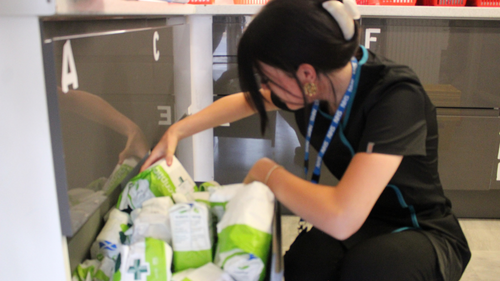GPhC Consultation on Draft Changes to Fees
Published: 01/05/2025
The General Pharmaceutical Council (GPhC) is consulting on proposals to increase registration fees for Pharmacists, Pharmacy Technicians, and Pharmacy premises over a two year period.
Proposed changes to fees
From September 2025:
Pharmacist renewal fees would increase by £17 to £293
Pharmacy technician renewal fees would increase by £8 to £138
Pharmacy premises renewal fees would increase by £24 to £416
From September 2026:
Pharmacist renewal fees would increase by £17 to £310
Pharmacy technician renewal fees would increase by £8 to £146
Pharmacy premises renewal fees increase by £25 to £441
This represents a 6% increase in all areas of GPhC registration stated above in each year.
The GPhC state that that this increase is necessary to enable them to fulfil their regulatory responsibilities effectively given higher rates of inflation, increased utility bills, and national insurance contributions whilst acknowledging that many of those who are affected by these increases in registration fees are also similarly affected by the aforementioned matters.
The feedback survey is open until 24th April 2025, and can be accessed here:
-
Strongly Disagree
-
Strongly Disagree
-
The reasoning and principles behind the increases in fees are understandable. However, the GPhC are not unique in this, and the Community Pharmacy network, unlike other private businesses, cannot directly pass on cost increases to the end user, so the impact of these changes, coupled to those of National Insurance, Minimum Wage, Living Wage and Real Living Wage among others is extremely concerning.
Implementation
-
A Bit Too High
-
Agree
-
The two-year proposals make sense from a budgeting perspective, although 6% is far above current inflation.
CPS disagree with any increase to the premises registration fee.
Impact of the proposals
We want to understand whether our proposals may have a positive or negative impact on any individuals or groups sharing any of the protected characteristics in the Equality Act 2010.
Do you think our proposals will have a positive or negative impact on individuals or groups who share any of the protected characteristics?
| Positive impact | Negative impact | Positive and negative impact | No impact | Don't know | |
|---|---|---|---|---|---|
| Age | X | ||||
| Disability | X | ||||
| Gender reassignment | X | ||||
| Marriage and civil partnership | X | ||||
| Pregnancy and maternity | X | ||||
| Race | X | ||||
| Religion or belief | X | ||||
| Sex | X | ||||
| Sexual orientation | X |
We also want to know if our proposals may have a positive or negative impact on pharmacy staff, pharmacy owners, foundation trainee pharmacists, and patients and the public.
Do you think our proposals will have a positive or negative impact on each of these groups?
| Positive impact | Negative impact | Positive and negative impact | No impact | Don't know | |
|---|---|---|---|---|---|
| Pharmacy staff | X | ||||
| Pharmacy owners | X | ||||
| Foundation trainee pharmacists | X | ||||
| Patients and the public | X |
-
The increases in Pharmacist and Pharmacy Technician registration fees are relatively small, and perhaps could be combated in isolation. However, given the doubling of premises registration fees since 2015, and the fact that many employers cover employee registration fees as part of annual salary considerations, the fees proposed are unacceptable given that they will, in many cases, be covered solely by the Community Pharmacy employer.
The GPhC identify increasing energy bills, proposed Employers National Insurance Contributions increases and inflation as contributing factors to the proposed increases. With so many new contractors in the Community Pharmacy workplace, these proposals to increase registration fees come at a very difficult time.
£1 in 2015 is equivalent in purchasing power to about £1.42 today, an increase of £0.42 over 10 years. The pound had an average inflation rate of 3.54% per year between 2015 and today, producing a cumulative price increase of 41.67%.
This means that today's prices are 1.42 times as high as average prices since 2015, according to the Office for National Statistics composite price index.
Therefore, over a ten-year period the increase in premises registration has doubled- well above the expected rate based on inflation, and as such CPS cannot agree with any further increase.

















Response to Scottish Government’s consultation on a new Long Term Conditions Framework, supporting a shift from condition-specific policies to a more integrated, equitable, and patient-centred approach.